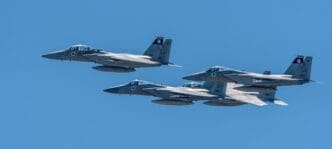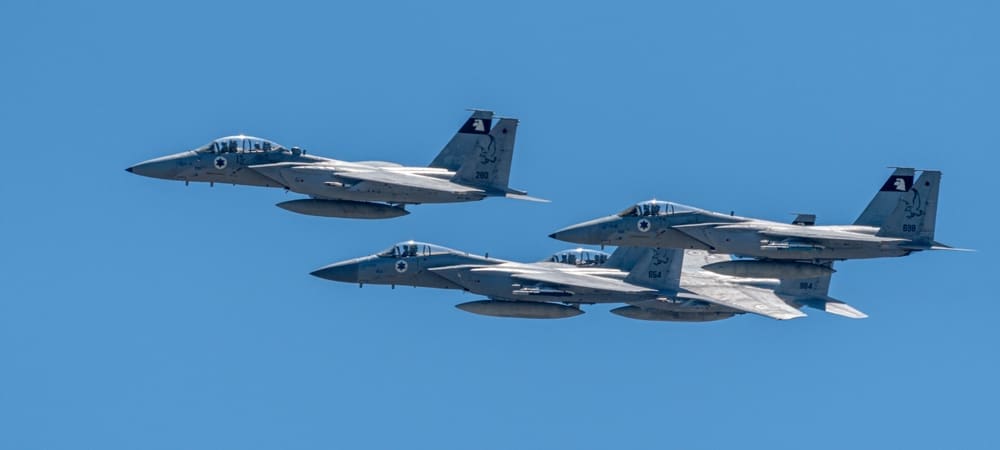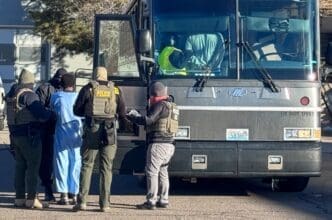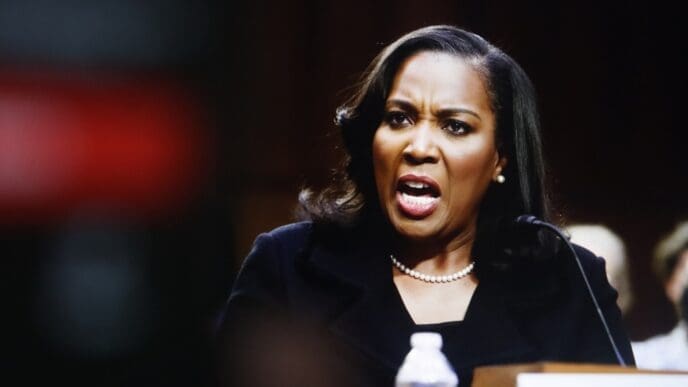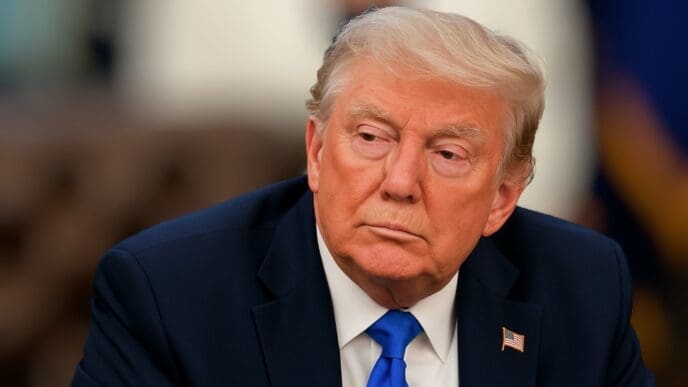Executive Summary
The Story So Far
Why This Matters
Who Thinks What?
An Israeli military strike in a residential district in Qatar, which killed five Hamas members, has reportedly dealt a significant blow to President Donald Trump’s international credibility and his efforts to broker a ceasefire in Gaza. Trump quickly distanced himself from the Tuesday raid, stating he was “not thrilled” and that it was not his decision, rushing to inform Qatar upon learning of the operation. The incident occurred during sensitive negotiations for a new U.S. ceasefire plan, raising questions about Israel’s regard for American diplomatic efforts and Qatari sovereignty.
Trump’s Reaction and Diplomatic Fallout
President Trump publicly expressed his displeasure, describing the situation as “not good” and emphasizing that the decision was not his. White House officials were reportedly furious, particularly because Israeli adviser Ron Dermer met with Trump’s envoy Steve Witkoff the day prior without mentioning the impending operation.
Edward Djerejian, a former U.S. ambassador to Israel, criticized the strike, stating that Israel was “not obviously paying much attention to US national security interests.” This sentiment underscores a perception that Israel’s actions may be diverging from crucial American diplomatic priorities in the region.
Implications for Peace Efforts and Hostages
The strike is widely seen as potentially ending any hope for a negotiated peace to conclude Israel’s war in Gaza. Analysts suggest it could have horrific ramifications for the remaining Israeli hostages, who have been held for nearly two years.
The incident also implies that Prime Minister Benjamin Netanyahu may prioritize the total eradication of Hamas, which some consider an impossible task, over the return of hostages. An almost certain result is an intensification of Israel’s offensive in the Gaza Strip, which has already led to significant civilian casualties and alienated many of Israel’s international allies.
Netanyahu’s Stated Motives and Domestic Politics
Israel justified the strike by asserting its right to pursue terrorist leaders wherever they are, with Prime Minister Netanyahu stating that “the days when the heads of terror enjoyed immunity anywhere are over.” This aligns with his broader strategy of confronting various regional adversaries, including Hezbollah in Lebanon, Houthis in Yemen, and Iran.
However, many U.S. analysts interpret Israel’s attempt to kill negotiators involved in a U.S. peace plan as evidence that Netanyahu aims to prolong the war. This prolongation could serve his domestic political interests by postponing inevitable investigations into security lapses following the October 7, 2023, Hamas attacks and keeping his personal legal challenges “off the boil.”
While many Israelis view the Hamas attacks as an existential threat, a growing number also oppose the extensive warfare in Gaza and are desperate for the return of hostages through a negotiated settlement.
U.S.-Qatar Relations and Broader Credibility Concerns
The strike in Doha is perceived as a flagrant violation of the sovereignty of Qatar, a vital U.S. ally that hosts the largest U.S. military base in the Middle East, Al Udeid Air Base. Qatar was actively mediating with Hamas on behalf of the White House, making the strike a significant diplomatic affront.
The White House engaged in damage control, with press secretary Karoline Leavitt issuing rare public criticism of Israel, stating that bombing inside Qatar “does not advance Israel or America’s goals.” President Trump further reiterated on Truth Social that it was “a decision made by Prime Minister Netanyahu, it was not a decision made by me,” and ordered Secretary of State Marco Rubio to finalize a defense cooperation pact with Qatar.
Despite official U.S. denials of prior knowledge, the logistics of deploying multiple fighter jets for such an operation have fueled speculation in the Middle East about potential U.S. complicity. Qatar’s government reported receiving a warning only after the attack had concluded.
A complication arises from Trump’s earlier acceptance of a Boeing 747 from Qatar for use as a new Air Force One, raising questions about whether his actions are solely driven by U.S. security interests or influenced by personal considerations. The incident also undermines the perceived reliability of U.S. security guarantees for Qatar and other allies globally, and reinforces a belief that Trump lacks significant influence over Prime Minister Netanyahu, despite the substantial U.S. defense support to Israel.
Impact on Trump’s Peacemaker Role
The Israeli strike casts serious doubt on President Trump’s self-proclaimed role as a global peacemaker. The new U.S. peace plan for Gaza relies on Trump’s ability to guarantee to Hamas that Israel would adhere to a ceasefire in exchange for hostage releases.
The brazen attack in Doha suggests that such a guarantee from Trump might be perceived as an empty promise. This incident further exposes challenges for his foreign policy team in navigating relations with powerful global leaders and underscores the complexities of achieving peace in the region.

